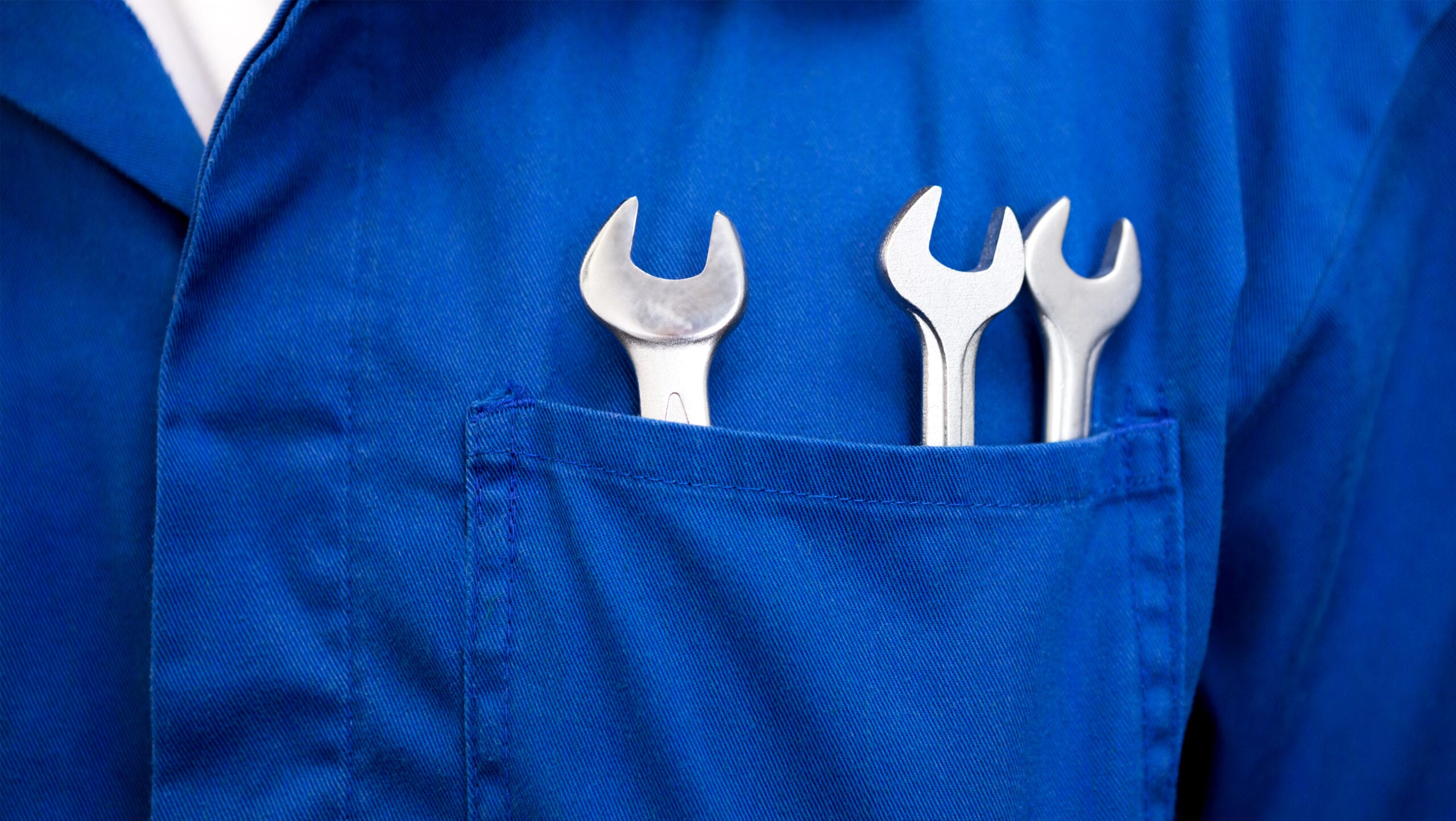Jennifer Nelson knew she had to say something. A mechanic for more than 10 years in the United States, Nelson had transitioned but wasn’t out at the shop she worked in. But when her co-workers began harassing a trans customer, she knew she had to step in despite the risk to her own safety.
“I explained to them that regardless of their own feelings, she was a human being and a client that was willing to bring her business to us,” Nelson says. “She deserved the same respect that any other client would get.”
That day marked the beginning of the end for Nelson. Snide comments about trans people became commonplace in her shop. It was like her colleagues somehow “knew” about her identity, and she couldn’t shake the discomfort. Feeling unsafe, she left the shop soon after the incident.
The automotive repair industry has long been a male-dominated space, taken up predominantly by straight men. In 2016, women made up just 13.7 percent of the industry as a whole in Canada, and female repair technicians are a fraction of even that slim number. The U.S. does even worse, with only 9.9 percent of the automotive repair and maintenance industry identifying as women in 2019. And women are often treated as second-class citizens in the repair industry—forced to face everyday sexist microaggressions and outnumbered by men in what’s often deemed a “boys’ club.”
It’s not any easier for queer and trans folks. The automotive industry suffers from significant hypermasculinity, and with that comes a barrage of homophobia and transphobia. We are the butt of jokes and the subject of hate, discrimination and rampant abuse. While statistical data on sex and race for the automotive repair industry as a whole is available, gender and sexuality information is not.
And you don’t have to be out at a repair shop to feel the effects of homophobia and transphobia: When mechanics are joking about lesbian sex, corrective rape or making fun of trans customers, every LGBTQ2 person in the shop is affected. And then there are situations like Jennifer Nelson’s.
In the seven years I spent in repair and collision shops, I was taunted and humiliated, and my opinions and hard work mattered less because I was a woman—an openly queer, femme woman at that.
For one, the day I announced my engagement at the shop where I worked, in a suburban, right-wing community outside of Milwaukee, is seared in my memory. “I believe that marriage is between a man and a woman,” my boss told me after slamming his hands down on the counter. I wasn’t the only engaged person in the shop. There were two others, and their engagements were celebrated and congratulated as the momentous occasions they were. Mine wasn’t. My family and humanity didn’t matter at that moment. Only his beliefs did.
Nowadays, I spend my time in the industry outside of the shop—running my automotive education business, Mechanic Shop Femme, and writing, speaking and educating people about cars and maintenance so that they have a handle on vehicles and repairs when they head to the shop. I get to stray from the often discriminatory spaces that make up repair shops and empower women and LGBT people to be better consumers and not fear the shop.
Many women in the automotive industry, however, don’t stand for this discrimination—and they’re trying to enact change from inside repair shops.
“In the years I spent in repair and collision shops, I was taunted and humiliated, and my opinions and hard work mattered less because I was an openly queer, femme woman”
In 2009, Lucy Carrera, a San Francisco-based motorcycle mechanic with 17 years of experience, created a space for women in the industry. She started the Female Mechanics Alliance, a small Facebook community whose founding mission is to “network and focus our awesome female prowess.” The group, which began with just two and then three members, now includes women across mechanical repair industries, ranging from automotive mechanics to aircraft to motorcycle and boat mechanics. It spans multiple continents and boasts more than 2,300 members.
The group is more than just a place to be around similar people—it’s a collective that acts as a sounding board for everything from discrimination to how to work while pregnant. It’s a space to open up about all of the little things that the male-dominated industry doesn’t consider a vital part of shop support systems.
One member, Damien Mederick, has worked in the automotive repair industry since 2017. He recently came out as trans to the group: “When [I] joined this group I was a female and now I’m transitioning to male,” he wrote. “If you want me to remove myself cause I’m no longer a female I completely understand.” Instead of being banned, he was greeted (by the mostly straight cis women) with open arms and joyous cheers. People were thrilled he was ready to live his true self.
When Carrera started the group, she said it wasn’t even a question whether trans members should be welcome. And as the group evolved, she did too. “As a cisgender, mostly hetero woman, I’ve stumbled along awkwardly to ensure that we appear as inclusive as we feel we already are,” she says. “When Damien [Mederick] spoke of concerns of fitting in, it rang true with almost every single one of us. As females in a male-dominated industry, we all struggle with our identity and how we find our own place in it.”
“On an institutional level, including straight and cis women in the industry continues to be an uphill fight, and queer and trans folks are often overlooked”
Jill Trotta, a master mechanic and a vice-president at automotive network Repair Pal, says groups like the Female Mechanic Alliance can move the conversation on queer and trans inclusion forward, because the creation of these kinds of communities helps eliminate the systemic issues that can get in the way of support. On an institutional level, the industry has been a space solely for straight men; including straight and cis women continues to be an uphill fight, and queer and trans folks are often overlooked.
And when people from marginalized communities succeed, sexism, homophobia and transphobia are frequent responses. “I see the community holding itself back when someone is breaking out and doing good, having a good idea, making money,” Trotta says. “We need to celebrate and help each other more.”
After experiencing transphobia at her former shop, Nelson spent six years as a repair tech before permanently laying down her tools. She hasn’t left the industry altogether—she’s moved on to service advising after an injury. “[It] forced me to wipe the grease off and lock up the toolbox,” she says.
But Nelson recently joined the Female Mechanics Alliance—a chance to find community in an industry so often exclusive of women like her. “[The group] has provided me an opportunity to meet and chat with other women who are in the industry and can relate to the daily struggles of women in a predominantly male-dominated profession,” she says.
Legacy: July 22, 2020 11:30 amThe story has been updated to reflect Lucy Carrera’s role in starting the Female Mechanics Alliance.


 Why you can trust Xtra
Why you can trust Xtra


